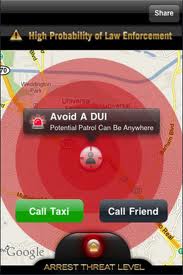 A misdemeanor drunk driving charge was filed against Michael P. Ditka, 49, the son of former Chicago Bears Head Coach Mike Ditka, after an arrest on April 20th. However, that charge was upgraded to a felony because he has two prior DUI arrests, according to Lake County News-Sun.
A misdemeanor drunk driving charge was filed against Michael P. Ditka, 49, the son of former Chicago Bears Head Coach Mike Ditka, after an arrest on April 20th. However, that charge was upgraded to a felony because he has two prior DUI arrests, according to Lake County News-Sun.
Ditka was arrested in Highwood, Illinois, in 2004, and he was placed on probation. He was arrested again in Deerfield, Illinois, in 2008, and he was placed on probation after pleading guilty to reckless driving.
If convicted he faces a maximum of seven years in prison. He is currently free on bond.
If this drunk driving arrest was made in California, and the defendant only had two prior DUI convictions in the past ten years, this third DUI would only be charged as a misdemeanor, as long as it did not involve an injury accident and the driver did not commit another illegal act while driving under the influence.
Under California Vehicle Code Section 23550, if a person is convicted of drunk driving and the offense occurred within ten years of three or more separate DUI violations that resulted in convictions, that person shall be punished by imprisonment in the state prison, or in a county jail for not less than 180 days nor more than one year, and by a fine of not less than $390 nor more than $1,000.
 San Diego DUI Lawyers Blog
San Diego DUI Lawyers Blog


 After the incident, he was taken to Chula Vista Police Department and booked on suspicion of
After the incident, he was taken to Chula Vista Police Department and booked on suspicion of  The
The 
 The Attorney General of Maryland and Delaware are asking Google and Apple to discontinue applications for their mobile phones, the Android and iPhone respectfully, that show the location of DUI checkpoints, according to
The Attorney General of Maryland and Delaware are asking Google and Apple to discontinue applications for their mobile phones, the Android and iPhone respectfully, that show the location of DUI checkpoints, according to 